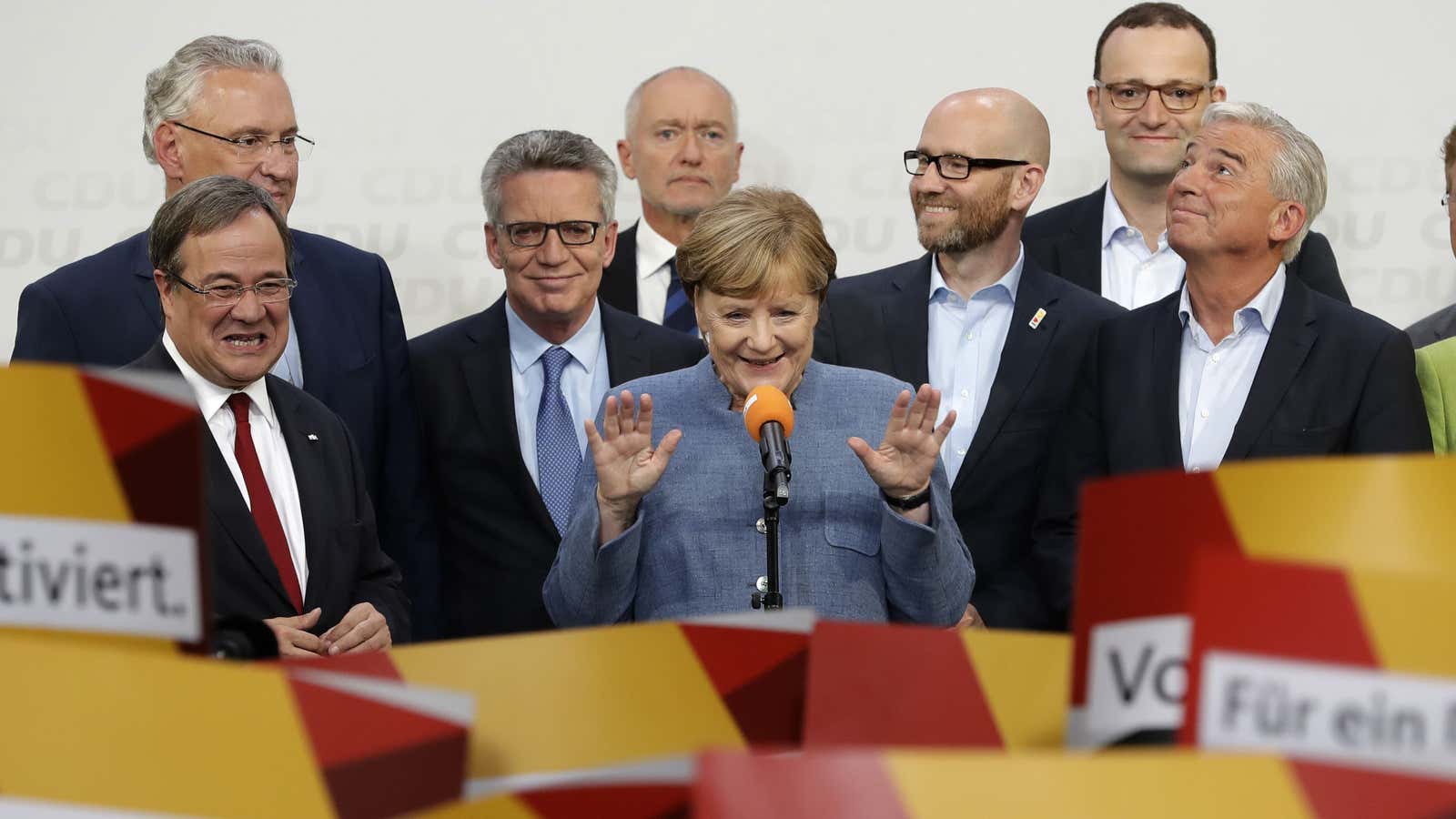It wasn’t a stunning victory. In fact, Angela Merkel’s Christian Democrats (CDU) had their worst showing since 1949, but Merkel’s fourth term as leader of Germany is secure.
The official count shows that together with its sister party, the CDU won 33% of the vote. The Social Democrats, who were the CDU’s partners in the last coalition government, came second with nearly 21%.
The big upset of the night was the right-wing, anti-refugee Alternative für Deutschland, who garnered nearly 13% of the national vote to become the third-largest party in the German parliament, entering it for the first time since the Second World War.
The Free Democrats with nearly 11%, came in fourth, followed by the Left with just over 9%, and the Greens close behind them.
“Thank you with all my heart—this election was really fun.” said a blue-blazered Merkel at her party headquarters in Berlin on Sunday evening, to cheers of “Angie” and people holding banners with the pun “Voll Muttiviert” (fully motivated). But the chancellor seemed slightly subdued, admitting it wasn’t the result they’d hoped for.
With just under 27% of the vote, the CDU was down more than 7 percentage points compared with 2013; its sister party, the Christian Social Union, with just over 6% of the vote, also lost some ground.
Now the legwork begins. Merkel said at the televised roundtable discussion with all the candidates that she was confident she could form a coalition, but in reality three-way negotiations are likely to drag on for months.
While the numbers would have allowed her to form another grand coalition with the Social Democrats, that’s not going to happen. The SPD (maybe still led by Merkel’s challenger Martin Schulz, maybe not) has refused to enter another coalition with her, and wants to lead the opposition in parliament. One aim of that, it said, is to prevent the right-wing AfD from heading up the opposition.
This only leaves Merkel with one other realistic option, which is to form a coalition with the Greens and the Free Democrats. That’s what Germany calls a “Jamaica” coalition, because of the colors that represent the parties: CDU is black, the FDP is yellow, and Greens are indeed Green.
